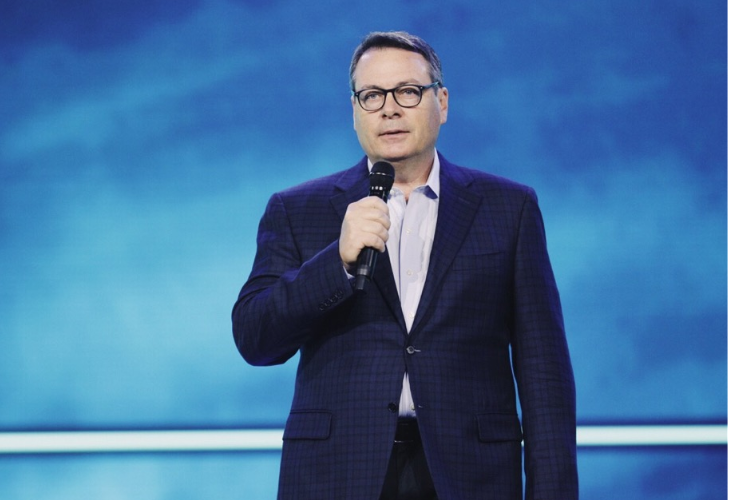The name Pastor Chris Hodges has long been associated with spiritual guidance, leadership, and community support. As the founder of Church of the Highlands, one of the largest and most influential churches in the United States, Pastor Hodges has inspired millions. However, his reputation faced a significant challenge with the emergence of a scandal that shook his congregation and the wider Christian community. This article delves into the details of the Pastor Chris Hodges scandal, providing an in-depth look at the events, reactions, and the pastor’s subsequent apology.
Table of Contents
ToggleThe Emergence of the Scandal
The scandal involving Pastor Chris Hodges surfaced in the early months of 2020, when social media posts and activities came under scrutiny. Pastor Hodges had “liked” and shared posts from a controversial political figure known for divisive rhetoric. These actions quickly drew criticism from various quarters, including members of his congregation, community leaders, and the general public. The posts in question were seen as endorsing views that many considered to be in direct conflict with the values of inclusivity and love preached by the Church of the Highlands.
Public Outcry and Immediate Reactions
The reaction to Pastor Hodges’ social media activity was swift and intense. Social media platforms were flooded with comments from both supporters and critics. Many long-time members of the Church of the Highlands expressed their disappointment and disillusionment. The backlash extended beyond the church community, attracting national media attention and sparking debates on the role of religious leaders in political discourse.
The church itself faced immediate consequences. The Birmingham Board of Education, which had partnerships with the Church of the Highlands, severed ties with the institution. The church had been providing valuable services, including educational support and community programs, which were now in jeopardy. The loss of these partnerships highlighted the broader impact of the scandal on the community.
The Church’s Response
In the face of growing controversy, the Church of the Highlands had to address the issue head-on. The church leadership quickly organized meetings and issued statements aimed at reassuring the congregation and the public. During a special Sunday service, Pastor Hodges addressed the congregation directly, acknowledging the hurt caused by his actions and expressing deep remorse. He emphasized that his intent was never to hurt or offend anyone and that he had not fully understood the implications of his social media activity.
The church also took steps to distance itself from the controversial posts. They reinforced their commitment to serving all members of the community, regardless of race or political affiliation. This period was marked by a series of open forums and listening sessions, where church members could voice their concerns and seek clarification on the church’s stance on various issues.
Pastor Hodges’ Apology
Pastor Chris Hodges’ apology was a pivotal moment in the unfolding scandal. During his address, he conveyed a heartfelt apology to those who were hurt by his actions. He admitted to a lack of awareness regarding the full impact of the posts he had engaged with on social media. Pastor Hodges explained that his intention had never been to align himself with any divisive rhetoric but rather to stay informed on various perspectives.
He took full responsibility for his actions and acknowledged the pain and confusion they had caused. Pastor Hodges committed to doing better, both personally and as a leader, and to educating himself more deeply on the issues at hand. He expressed a desire to rebuild trust within the community and to ensure that the Church of the Highlands remained a place of love, acceptance, and unity.
The Aftermath and Moving Forward
The aftermath of the scandal saw the Church of the Highlands grappling with the challenge of healing and rebuilding. The leadership, under Pastor Hodges’ guidance, undertook several initiatives to restore faith and trust. These included enhanced community outreach programs, increased transparency in church operations, and a renewed focus on inclusivity.
One significant step was the establishment of a diversity and inclusion task force. This group was tasked with examining the church’s policies and practices to ensure they aligned with the values of equity and justice. The task force also provided a platform for marginalized voices within the congregation, allowing them to contribute to the church’s direction and policies.
The church also intensified its efforts in community service, doubling down on initiatives that addressed social injustices and supported underprivileged groups. These efforts were part of a broader strategy to demonstrate the church’s commitment to positive change and to reaffirm its role as a pillar of the community.
Lessons Learned and Broader Implications
The Pastor Chris Hodges scandal serves as a profound case study on the complex interplay between religious leadership and public accountability. It underscores the heightened scrutiny that public figures, especially those in positions of spiritual authority, face in the age of social media. The incident highlighted the importance of awareness and sensitivity in the digital realm, where actions can have far-reaching and unintended consequences.
For Pastor Hodges, the scandal was a humbling experience that prompted significant self-reflection and growth. It reinforced the need for continual learning and adaptation, particularly in understanding the diverse perspectives within his congregation and the wider community. The incident also emphasized the power of sincere apology and the potential for redemption through genuine efforts to make amends.
For the broader religious community, the scandal was a reminder of the critical role that inclusivity and compassion play in leadership. It demonstrated the necessity for leaders to remain vigilant and mindful of their actions, understanding that their influence extends beyond their immediate followers. The scandal also highlighted the importance of dialogue and engagement, encouraging religious institutions to foster environments where diverse voices can be heard and respected.
Conclusion
The Pastor Chris Hodges scandal was a defining moment for the Church of the Highlands and its leader. It brought to light the challenges and responsibilities that come with spiritual leadership in a connected and polarized world. Through his apology and subsequent actions, Pastor Hodges demonstrated a commitment to growth, learning, and reconciliation. The church’s efforts to rebuild and move forward offer valuable lessons on resilience and the power of community.
As the Church of the Highlands continues its journey, the lessons from this scandal will undoubtedly shape its future. The emphasis on inclusivity, transparency, and accountability will serve as guiding principles, ensuring that the church remains a beacon of hope and support for all who seek its guidance. The journey of healing and rebuilding is ongoing, but the steps taken so far reflect a sincere desire to turn a challenging chapter into an opportunity for positive transformation.
(FAQs)
- What was the Pastor Chris Hodges scandal about? The scandal involved Pastor Chris Hodges’ social media activity, where he liked and shared posts from a controversial political figure, which many viewed as contradictory to the values of inclusivity and love preached by the Church of the Highlands.
- How did the public react to Pastor Chris Hodges’ actions? The public reaction was swift and intense, with criticism coming from both within the Church of the Highlands community and the broader public. The backlash also attracted national media attention.
- What immediate consequences did the Church of the Highlands face due to the scandal? The Birmingham Board of Education severed ties with the Church of the Highlands, impacting several community programs and partnerships. The church also faced internal unrest and disappointment from its members.
- How did Pastor Chris Hodges address the scandal? Pastor Hodges issued a heartfelt apology during a special Sunday service, acknowledging the hurt caused by his actions and expressing remorse. He emphasized that his intent was never to hurt or offend anyone and committed to doing better.
- What steps did the Church of the Highlands take to rebuild trust? The church organized open forums and listening sessions, enhanced community outreach programs, and established a diversity and inclusion task force to ensure its policies and practices aligned with values of equity and justice.
- What was the role of the diversity and inclusion task force at the Church of the Highlands? The task force was tasked with examining the church’s policies and practices to ensure inclusivity and equity. It provided a platform for marginalized voices within the congregation and contributed to the church’s direction and policies.
- How did the scandal impact Pastor Chris Hodges personally? The scandal was a humbling experience for Pastor Hodges, prompting significant self-reflection and growth. It reinforced the need for continual learning and adaptation, particularly in understanding diverse perspectives within his congregation and community.
- What lessons can be learned from the Pastor Chris Hodges scandal? The scandal highlighted the importance of awareness and sensitivity in the digital realm, the power of sincere apology, and the potential for redemption through genuine efforts to make amends. It also emphasized the necessity for religious leaders to remain vigilant and mindful of their actions.
- How did the Church of the Highlands demonstrate its commitment to positive change? The church intensified its community service efforts, addressing social injustices and supporting underprivileged groups. These actions were part of a broader strategy to demonstrate its commitment to inclusivity, transparency, and accountability.
- What are the broader implications of the Pastor Chris Hodges scandal for religious leaders? The scandal serves as a reminder of the critical role inclusivity and compassion play in leadership. It underscores the importance of dialogue and engagement and the necessity for leaders to foster environments where diverse voices can be heard and respected.




